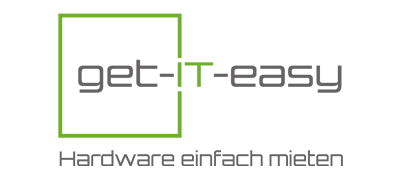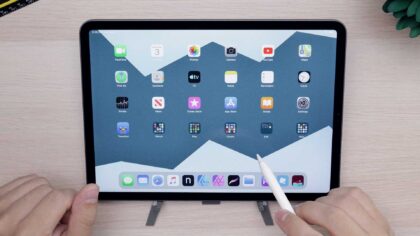Sustainability
Circular economy: How hardware rental contributes to resource conservation
Conserving resources is a key issue in times of climate change and resource scarcity. The circular economy offers innovative solutions to minimize the consumption of raw materials and at the same time reduce the burden on the environment. One promising strategy within this model is hardware rental. By renting IT hardware, companies can not only save costs, but also make an important contribution to conserving resources. But how exactly does it work? In this article, you will find out how hardware rental helps to conserve our valuable resources as part of the circular economy.
Conserving resources through innovative models
In a world where sustainability is becoming increasingly important, companies are looking for ways to reduce their environmental impact. One of these methods is the circular economy, which aims to use resources more efficiently and minimize waste. An innovative approach within this model is hardware rental, which not only offers economic benefits but also makes an important contribution to conserving resources. But how exactly does this concept work and what are the benefits?
The circular economy: a sustainable economic model
The circular economy is a forward-looking economic model that aims to keep products, materials and resources in the use cycle for as long as possible. In contrast to the traditional linear economy, which is based on the manufacture, use and subsequent disposal of products, the circular economy focuses on reuse, repair and recycling. These approaches help to reduce the need for new raw materials and significantly minimize the environmental impact of waste.
Companies that integrate the principle of the circular economy into their business models benefit from several advantages. In addition to the obvious environmental benefits, the circular economy can also enable significant economic savings. By using resources efficiently and reducing waste, companies can lower their operating costs while fulfilling their environmental responsibilities. It also reduces dependence on raw material supplies, which can be a decisive competitive advantage in times of dwindling resources.
Hardware rental: A key to conserving resources
Hardware rental is a concept in which companies rent IT equipment such as computers, tablets or accessories instead of buying them. This model not only brings financial benefits, but also makes a significant contribution to conserving resources. By renting hardware, companies can regularly update their IT equipment without having to dispose of the old devices. Instead, these devices are serviced, repaired and re-rented or recycled at the end of the rental period. This extends the life of the hardware and reduces the need for new raw materials.
A key aspect of hardware rental is the flexibility it offers. Companies can quickly and easily adapt their IT infrastructure to changing needs without having to commit to outdated equipment in the long term. This is particularly important at a time when technological developments are advancing rapidly. The ability to regularly access the latest technology without having to dispose of old devices not only reduces electronic waste, but also conserves valuable resources.
In addition, hardware rental allows companies to better control their costs. Instead of making high initial investments for the purchase of IT hardware, they can spread the expenditure over monthly or annual installments, which improves liquidity and offers financial planning security. This is particularly beneficial for small and medium-sized companies, which often have to calculate their IT budgets carefully.
Advantages of hardware rental for companies:
The benefits of hardware rental go far beyond mere cost savings. Here are some of the key benefits that companies can achieve through hardware rental:
- Cost control: Companies only pay for what they use and can avoid high acquisition costs. This leads to better budget planning and greater financial flexibility.
- Flexibility: The IT infrastructure can be quickly and easily adapted to changing needs. Companies can react quickly to changes in the market or in their own operations without having to rely on outdated technology.
- Sustainability: Extending the service life of appliances significantly reduces the consumption of resources. Old appliances are either reused, refurbished or recycled in an environmentally friendly way, which helps to reduce electronic waste.
- Technological up-to-dateness: Companies have access to the latest technology without having to make large investments. This ensures that they are always up to date and remain competitive.
Comparison: Hardware rental vs. purchase of IT hardware
The decision between hardware rental and the purchase of IT hardware depends on various factors, including budget, technological requirements and environmental responsibility. The following table provides a direct comparison between the two options:
| Criterion | Hardware rental | Purchase of IT hardware |
|---|---|---|
| Costs | Regular, predictable expenses | High initial investment |
| Flexibility | High adaptability | Low flexibility after purchase |
| Environmental impact | Lower due to reuse | Higher due to disposal |
| Technological up-to-dateness | Regular updates with new devices | Outdated hardware after a few years |
This table clearly shows that hardware rental is superior to the purchase of IT hardware, particularly in terms of flexibility, cost control and environmental friendliness. Companies that opt for rental can not only optimize their operating costs, but also make an active contribution to conserving resources.
Hardware rental with get-IT-easy
If your company is looking for a flexible and sustainable solution for IT hardware, get-IT-easy offers the perfect option. At get-IT-easy, you can rent a wide range of IT equipment, from virtual reality and computers to stands/mounts and other accessories. get-IT-easy allows you to access the latest technology without having to make high purchase costs. At the same time, get-IT-easy helps to conserve resources by reusing and recycling the rented equipment, making it an environmentally friendly choice for modern businesses.
Conclusion
The circular economy is a key model for the future of resource conservation, and hardware rental plays an important role in this. By renting IT equipment, companies can not only reduce their costs and react flexibly to changes, but also make a significant contribution to environmental protection. Extending the lifespan of equipment, reducing electronic waste and using resources more efficiently make hardware rental a sustainable and forward-looking option for companies of all sizes.
FAQ: Frequently asked questions about hardware rental and resource conservation
1. how does hardware rental help to conserve resources?
Hardware rental extends the service life of IT equipment, reduces the need for new raw materials and minimizes electronic waste.
Devices are serviced, repaired and rented out again or recycled in an environmentally friendly manner at the end of the rental period.
2 What are the financial advantages of hardware rental?
Companies can better control their IT costs by making regular, predictable payments instead of high initial investments.
This improves liquidity and enables flexible adaptation to technological changes.
3. is hardware rental only suitable for large companies?
No, hardware rental is suitable for companies of all sizes.
Small and medium-sized companies in particular benefit from the flexibility and cost savings offered by this model.
4. what happens to the rented hardware at the end of the rental period?
The hardware is serviced, repaired and rented out again or, if necessary, recycled.
This extends the service life of the devices and helps to conserve resources.





